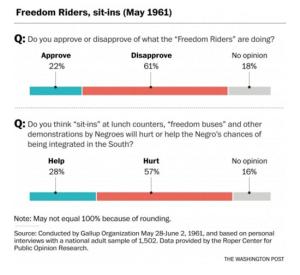• Before this blog’s long decline, I worked to ensure there were regular threads for commenters, especially when there’s some big breaking news story. Has there been any big story like that lately? I dunno — I’ve got some reading to catch up on.
But here, at least and at last, is some fresh thread for y’all to discuss such things, or other things, or anything, including but not limited to the items below.
• This essay/book excerpt at The Revealer lost me. It’s an important topic — “Establishing Reagan’s Religious Outlook for the U.S.” — and Diane Winston has some insightful things to say about it. But this is one of those “social upheavals of the 1960s” essays, and I don’t think that helps us to see or say the truth more clearly.

The “social upheavals” of the ’60s and ’70s were not generic or random. And it doesn’t matter whether we’re talking about the 1960s and 1970s or the 1860s and 1870s, it’s the same “social upheaval.” We prevent ourselves from understanding that when we fall back on fuzzy euphemism or treat this like some freak weather phenomenon. It wasn’t some ineffable “social upheaval” that fell from heaven and it wasn’t about sex, drugs, and rock & roll. The “social upheavals of the 1960s” were not unprecedented, and the backlash against them that transformed American politics in the 1970s and 1980s were not unprecedented either. It was the assertion of legal equality for Black Americans followed by the often-violent white backlash rejecting that equality.
That’s not part of Winston’s essay on the supposedly new “religious imaginary” ushered in by Ronald Reagan, and that renders the essay’s many otherwise good points as mostly beside the point.
See earlier:
- White evangelicals and ‘the social upheaval of the ’60s’
- Look over your shoulder
- When they say ‘the 1960s’
• Here, via Philip Jenkins, is Mark Twain in his 1897 Following the Equator, remembering the America of his childhood — a world eventually, at least temporarily, upended by “the social upheaval of the ’60s”:
My father was a refined and kindly gentleman, very grave, rather austere, of rigid probity, a sternly just and upright man, albeit he attended no church and never spoke of religious matters, and had no part nor lot in the pious joys of his Presbyterian family, nor ever seemed to suffer from this deprivation. He laid his hand upon me in punishment only twice in his life, and then not heavily; once for telling him a lie—which surprised me, and showed me how unsuspicious he was, for that was not my maiden effort. He punished me those two times only, and never any other member of the family at all; yet every now and then he cuffed our harmless slave boy, Lewis, for trifling little blunders and awkwardnesses. My father had passed his life among the slaves from his cradle up, and his cuffings proceeded from the custom of the time, not from his nature. When I was ten years old I saw a man fling a lump of iron-ore at a slaveman in anger, for merely doing something awkwardly—as if that were a crime. It bounded from the man’s skull, and the man fell and never spoke again. He was dead in an hour. I knew the man had a right to kill his slave if he wanted to, and yet it seemed a pitiful thing and somehow wrong, though why wrong I was not deep enough to explain if I had been asked to do it. Nobody in the village approved of that murder, but of course no one said much about it.
• The No. 1 Christian album on iTunes as August began was “Bible Belt Baby by Flamy Grant, a drag performer.”
If you’re thinking “Flamy Grant is a great drag name,” then you fall into the segment of the Venn diagram that may enjoy this, her video for the single “What Did You Drag Me Into?”
This song is, among other things, what my people call a “personal testimony,” although it’s still going to give conniptions to all the eager-to-take-offense folks it’s intended to set off. Even they will have to admit that it’s kind of a bop and that Flamy’s got pipes.
“What did you drag me into?” is, in this song, the confused and exasperated cry of white evangelical parents in the Bible Belt coming to realize that the son they expected to raise wasn’t the son that God gave them.
That question also strikes me as how the apostles in Jerusalem responded to the news that Philip had been taking Pentecost and the Great Commission way too seriously and was busy baptizing everybody in Samaria without their oversight.
• That song’s message to her parents — defiance, invitation, reassurance, gratitude — reminded me of this one from the late, great Sinead O’Connor, “Daddy I’m Fine,” the lyrics of which provided the title for this post.













